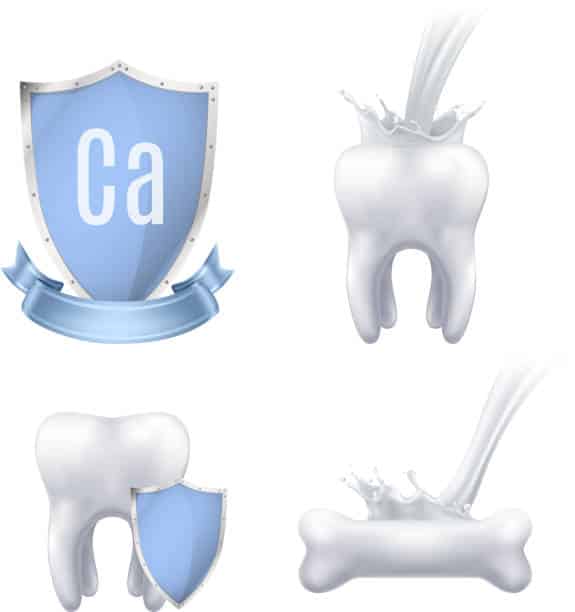Getting all of the nutrients you need simply cannot be done without vitamin supplements.
Your body needs a different variety of vitamins and minerals daily to function properly.
In today’s time, due to a busy schedule, the food you take can’t fulfill the daily required needs, so you must consider taking vitamin supplements regularly.
But Wondering a question like, which vitamin supplements should I take?
Is it really good to take supplements regularly for a long time?
Will it have any side effects when consumed?
Don’t worry, you are going to get all of these questions answered right here.
Essential Vitamin Supplements for a Healthy Life
1. Multivitamin
Multivitamins as their name contain all the variety of nutrients your body needs. Every multivitamin supplement has essential vitamins and minerals as ingredients but might differ in some extra nutrition.
There is no hard and fast standard rule to determine the composition of multivitamins

They are available in many forms, including capsules, tablets, gummies, pastilles, powders, and liquids.
Generally, multivitamins consist of vitamin A, Vitamin C, Vitamin D3, Zinc, Vitamin B12, Vitamin E, Folate, Biotin, Iodine, Copper, Magnesium, Calcium, etc.
These are some of the essential nutrients one needs in the body.
As per different brands, there could be some more nutrients in it, some could have less. But every multivitamin consists of essential vitamins and minerals in it.
Benefits
- Strong immunity and power
- Helps your nervous system function properly
- Works as antioxidant
- Helps to fulfill essential vitamins and minerals in the body
- Maintains general health and well-being
There are multivitamins for kids, adults, and senior citizens, you have to choose accordingly. If you want to learn more about multivitamins, click on this page: “Multivitamins in Nepal”.
Want to purchase the best Multivitamins, go to this category page of Vitamin Nepal Supplement Store: “Multivitamin Supplements”.
2. Omega-3 Fish Oil
Fish oil is one of the highly consumed dietary supplements.
It is rich in omega-3 fatty acids. Omega-3 fish oil contains both docosahexaenoic acid (DHA) and eicosapentaenoic acid (EPA).
Fish oil is the fat or oil that is extracted from fish tissue.

Omega-3 fatty acids are essential nutrients that are important in preventing and managing heart diseases.
Around 30% of fish oil is made up of omega-3s, while the remaining 70% is made up of other fats.
Omega-3 can not only be found in fish but it can be found in some plant sources too. However, omega-3s found in fish oil have higher health benefits than those found in plant sources.
Benefits:
- Lessen the chance of sudden cardiac death in people with heart diseases
- Maintains heart health
- May help treat certain mental health conditions
- Supports eye health
- May reduce inflammation
- Maintains healthy skin
- Lowers blood pressure
- Help reduce triglycerides
- May support pregnancy and early life
- May improve attention and hyperactivity in children
- Maintains bone health
- Helps maintain joint health
Want to learn more about Omega-3 Fish oil supplements, please check out this page: “Top 10 Benefits of Omega-3 Fish Oil”.
Want to purchase the best Omega-3 Fish Oil, go to this category page of Vitamin Nepal Supplement Store: “Omega-3 Fish Oil Supplements”.
3. Calcium + Vitamin D3
Another important vitamin supplement/dietary supplement to consider is calcium + vitamin d3.

Although you can get vitamin D3 naturally when directly exposed to sunlight, sometimes, you may need it from an outer source like supplements.
Similarly, calcium plays an important role in the body. Calcium + vitamin D3 are mostly taken compounded as one supplement as they interchangeably help to maintain certain health.
Vitamin D has several important roles in the body. Perhaps the most important one is to help absorb calcium and phosphorus and facilitate normal immune system function.
‘To maintain the growth and development of bones and teeth, as well as improved resistance to certain diseases, you must have abundant vitamin D intake.
Similarly, your body needs calcium to build and maintain strong bones and teeth.
Your heart, muscles, and nerves also need calcium to function properly.
Some studies suggest that calcium, along with vitamin D, may have benefits beyond bone health: perhaps protecting against cancer, diabetes, and high blood pressure.
Benefits of Calcium + Vitamin D3
- Helps fight several diseases like sclerosis. May decrease the chance of heart diseases
- Helps maintain stronger immunity power
- May help to regulate mood and reduce depression
- Maintains healthy bones and teeth
- Might support weight loss
Feels like purchasing calcium + vitamin d3 supplements, visit this page: “Nature’s Care Calcium + D3”.
4. Vitamin D3
Vitamin D3 is a vitamin that helps your body stay strong and healthy. It is important because it helps your bones absorb calcium, which makes them stronger.
You can easily get Vitamin D3 from sunlight, as well as foods like fish, eggs, and milk. However, without enough Vitamin D3, your bones can become weak, and you might feel tired.
If you are unable to get Vitamin D3 from sunlight and foods, then a Vitamin D3 supplement is the best choice for you. It is another natural way to obtain Vitamin D3.

Always ask a doctor before taking a supplement to know if you need it.
Benefits
- Strengthens bones by helping the body absorb calcium.
- Boosts the immune system, helping the body fight off illnesses.
- Improves mood and may reduce the risk of depression.
- Supports muscle function, keeping muscles strong and healthy.
- Promotes heart health by maintaining healthy blood pressure.
- Helps with brain health, possibly improving memory and brain function.
- Reduces the risk of bone-related diseases like osteoporosis.
5. Vitamin C
Vitamin C is an essential vitamin needed for the body. Our body can’t produce it, yet it has many health benefits.

It can be easily consumed from vegetables and fruits like oranges, strawberries, fruit kiwi, broccoli, kale, spinach, and many more.
It is needed for the body to function and develop properly. Also, it plays an important role in maintaining immunity power.
Most commonly, people use vitamin C to treat scurvy, and also to prevent and treat common colds.
Benefits:
- Boost immunity power
- May reduce your risk of chronic disease
- Help manage high blood pressure
- May lower your risk of heart disease
- May reduce blood uric acid levels and help prevent gout attacks
- Helps prevent iron deficiency
- Protects your memory and thinking as you age
Here you have gained knowledge of supplements that are important in your daily life. But don’t take all of these supplements at once.
Also, consult a physician if you are pregnant or nursing, taking medication, or have a medical condition. Keep out of reach of children as far as possible.
Also, keep in mind to not overdose the recommended dose mentioned in the packet.
While you are taking any one of the supplements, better take that one only. Additionally, all supplements at a time are not recommended. Moreover, excessive doses may cause harmful results.
If you take multivitamins or fish oil you don’t need other supplements. Also if you take vitamin C, or Zinc or Calcium + vitamin D, take one only.
It would be better to take other supplements after you finish one.
Frequently Asked Questions (FAQs)
Are these the only supplements should we take?
No, these are not the only supplements that you should take. You can take other supplements too as per your need.
Above mentioned 5 supplements are the essential vitamin supplements/dietary supplements that are most important for your body regularly. They are the most commonly used supplements all over the world too.
Which vitamin supplements should I take?
You should take vitamin supplements only if your body needs extra help getting the nutrients it can’t get from food alone. For example, if you don’t get enough sunlight, you might need vitamin D. Alternatively, if you don’t eat enough fruits or veggies, a multivitamin supplement can help. But it’s always best to talk to a doctor first because taking too much of supplements can be harmful. Eating a balanced diet is still the most important way to stay healthy.
How long can you take supplements continuously?
While continuing any of the supplements also, don’t prolong intake for more than 3 months. Afterward, make a gap of one month and presume the taking of supplements.
Your body could eventually become habitual of supplements if you take supplements for a longer period.
The natural process of nutrition yielding may be affected if taken for a longer duration, so make sure you take a gap while taking dietary supplements.
Do vitamin supplements have any side effects?
No vitamin supplements/dietary supplements do not have any side effects unless taken unsafely and for more than a dose.
As yet, no side effects have been noted by vitamin supplements.
Anything that is taken more than recommended has adverse effects. For example, if fruits are also taken more than needed, you could have stomach pain.
Summary
In summary, we recommend you take multivitamins or omega-3 fish oil to maintain your health. Additionally, you can take other food supplements too as needed. However, it is recommended to consult your doctor if you feel deficient in some vitamins or minerals.
To fill your nutritional gaps, you might want to explore Vitamin and mineral supplements in Nepal for a complete health boost.
You can order directly by calling us.
📞Contact: 9801205255, 9847396489
Or
